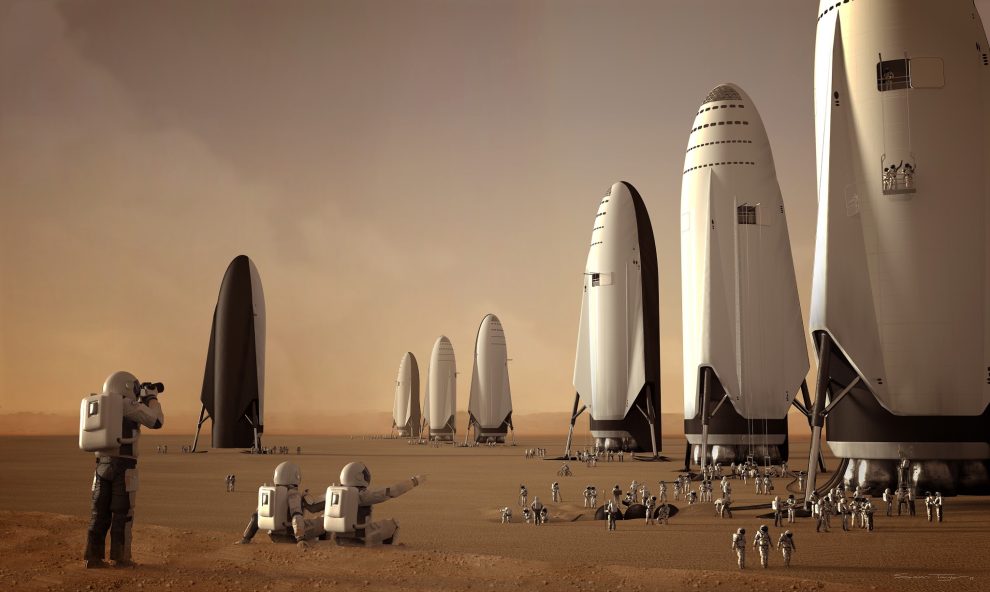In a headline-grabbing twist, a recent New York Times report sent shockwaves through the space exploration community. The report alleged that Elon Musk, the CEO of SpaceX, had “volunteered his sperm” to help establish a permanent human colony on Mars. This audacious claim, however, has been swiftly denied by Musk himself, raising questions about the ethics and logistics of such a proposition.
Setting the Stage: Humanity’s Martian Dreams
Elon Musk has long been a vocal proponent of colonizing Mars. He envisions SpaceX, his aerospace company, playing a pivotal role in making this dream a reality. Here’s a glimpse into Musk’s vision for Mars:
- A Multiplanetary Species: Musk believes humanity must become a multiplanetary species to ensure our long-term survival. Establishing a colony on Mars would offer a backup plan in case of unforeseen disasters on Earth.
- The “Million Martian” Vision: Musk has ambitious goals for Mars colonization. He envisions transporting millions of people to Mars within the next few decades, creating a self-sustaining human civilization.
- SpaceX’s Starship Program: SpaceX is developing the Starship, a reusable launch system critical for transporting humans and cargo to Mars efficiently.
The idea of colonizing Mars is complex, with numerous technological and logistical hurdles to overcome. The recent sperm-donation claim adds another layer of controversy to this already ambitious endeavor.
A Donation for Mars? Debunking the Sperm Donation Claim
The New York Times report cited “two people familiar with his comments” who claimed Musk offered his sperm to help “seed” a Mars colony. This suggestion sparked widespread debate about the ethics and practicality of such a proposal.
However, Elon Musk took to Twitter to swiftly deny these allegations. He stated, “I have not fwiw [for what it’s worth] ‘volunteered my sperm’ for Mars,” effectively debunking the New York Times claim.

The report also lacked details about how such a sperm donation program would be implemented or managed within SpaceX.
Beyond the Headlines: Ethical Considerations for Mars Colonization
Even if Musk’s denial is true, the underlying concept of a “designer gene pool” for a Mars colony raises ethical concerns. Here are some issues to consider:
- Eugenics Concerns: Selecting specific individuals based on genetics could be seen as a form of eugenics, raising ethical questions about who gets to participate in colonizing Mars.
- Social and Psychological Implications: The psychological impact of growing up in a small, isolated colony with a limited gene pool needs careful consideration.
- Focus on Sustainability over Genetics: Perhaps the focus should be on creating a sustainable environment on Mars that can support a diverse population, regardless of genetic background.
The ethical implications of Mars colonization extend far beyond potential sperm donations. Issues like resource allocation, governance, and social structures will need to be addressed to create a thriving Martian society.
The Path Forward: Building a Diverse and Sustainable Mars Colony
While the “sperm donation” story might be a publicity stunt or a misconstrued comment, it sparks a vital conversation about building a sustainable future on Mars. Here’s what a responsible approach to Mars colonization might look like:
- Focus on Diversity and Inclusion: Colonization efforts should prioritize diversity in the initial colonist population, ensuring a broad range of skills, backgrounds, and perspectives.
- Long-Term Sustainability: The primary focus should be on developing technologies and infrastructure for self-sustaining food production, water management, and waste disposal on Mars.
- International Collaboration: Achieving a Martian colony will require collaboration between space agencies and private companies around the world, pooling resources and expertise.
Building a thriving colony on Mars is a monumental challenge, but one that requires careful planning and an ethical approach.
A Reality Check: The Challenges of Mars Colonization
Even without the drama of sperm donations, colonizing Mars presents a multitude of challenges:
- The Harsh Martian Environment: Mars is a cold, dry, and desolate world with a thin atmosphere and harmful radiation levels. Creating a habitable environment for humans will be a massive undertaking.
- The Immense Cost: The financial resources required to transport and sustain humans on Mars are staggering. Public and private investments will be crucial to make this vision a reality.
- The Long Journey: The travel time between Earth and Mars takes months, posing significant health risks for astronauts and presenting logistical hurdles for regular resupply missions.
Musk’s vision for Mars is undoubtedly ambitious, and the recent sperm donation story, whether true or not, highlights the complex social and ethical considerations that arise when contemplating such a futuristic endeavor.
















Add Comment